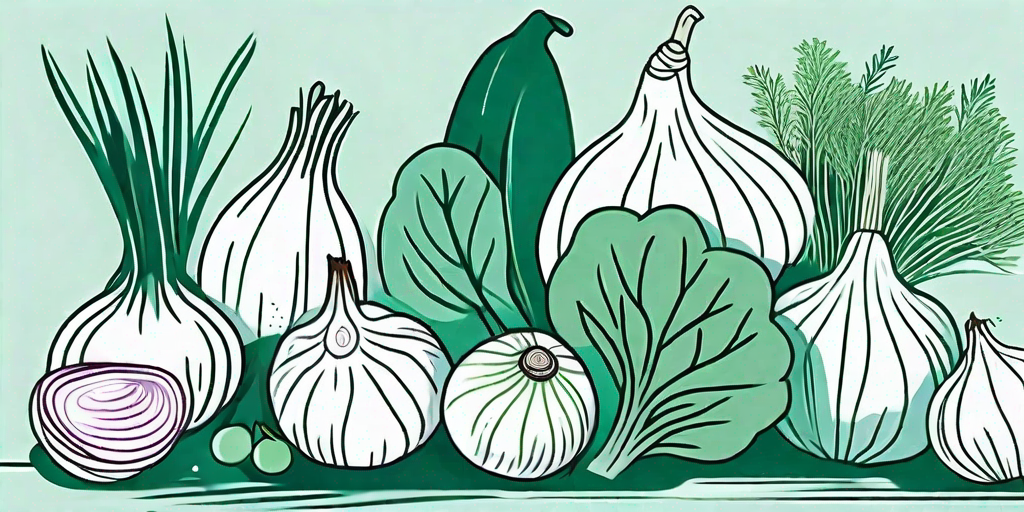
St. John's Wort, also known as Hypericum perforatum, is a plant that's been used for centuries as a natural remedy for a variety of ailments. From treating depression to healing wounds, this versatile herb has a lot to offer. So, let's dive in and explore the wonders of this little-known plant.
The History and Origin of St. John's Wort
The Name and its Significance
The name 'St. John's Wort' might sound like it belongs to a medieval knight, but it's actually a reference to St. John the Baptist. The plant usually blooms around the time of St. John's Day on June 24th, hence the name. The 'wort' part is an old English term for plant. So, no knights involved, just a humble plant with a grand name.
As for the 'Hypericum perforatum' part, that's the scientific name. 'Hypericum' comes from the Greek words 'hyper' and 'eikon', meaning 'above a picture'. This refers to the tradition of hanging the plant above images in the home to ward off evil spirits during St. John's Day. 'Perforatum' refers to the tiny holes in the leaves of the plant. So, in essence, St. John's Wort is a picture-hanging, holey plant. Fascinating, isn't it?
Historical Uses
St. John's Wort has been used for medicinal purposes in various cultures for thousands of years. Ancient Greeks used it to treat various ailments, and it was a staple in traditional European medicine. It was even used by Native Americans externally for wounds, burns, and insect bites.
Today, it's most commonly used as a natural remedy for depression, anxiety, and sleep disorders. But we'll get to that later. For now, let's stick to the history lesson.
The Health Benefits of St. John's Wort
Depression and Anxiety
St. John's Wort is perhaps best known for its potential benefits in treating mild to moderate depression. Some studies have found it to be as effective as standard antidepressants, with fewer side effects. It's thought to work by increasing the levels of certain chemicals in the brain that play a role in regulating mood.
It's also been used to help with anxiety. While it's not a cure-all, many people find it helpful in managing their symptoms. But remember, it's always best to consult with a healthcare provider before starting any new treatment.
Skin Health
St. John's Wort isn't just good for your mental health, it's also great for your skin. It has antibacterial properties and can be used topically to help with minor wounds, burns, and skin irritations. It's also been used to help with conditions like eczema and psoriasis.
And if you're worried about the aging process, St. John's Wort might be your new best friend. It's packed with powerful antioxidants that can help protect your skin from the damaging effects of free radicals. So, not only can it help you feel good, it can help you look good too.
How to Use St. John's Wort
Teas and Tinctures
One of the most common ways to use St. John's Wort is in the form of tea or tincture. To make a tea, simply steep the dried herb in hot water for about 10 minutes. For a tincture, the herb is soaked in alcohol for several weeks to extract the active compounds.
Both methods can be effective, but it's important to note that the potency can vary depending on the quality of the herb and the preparation method. So, if you're not seeing the results you want, it might be worth trying a different brand or preparation.
Capsules and Tablets
If you're not a fan of herbal teas or tinctures, don't worry. St. John's Wort is also available in capsule and tablet form. This can be a convenient option for those who want to incorporate the herb into their daily routine.
Just remember, like with any supplement, it's important to follow the recommended dosage. Too much of a good thing can sometimes be a bad thing.
FAQs About St. John's Wort
Is St. John's Wort safe to use?
Generally, St. John's Wort is considered safe for most people when used as directed. However, it can interact with certain medications, so it's always a good idea to talk to your healthcare provider before starting any new supplement.
What are the side effects of St. John's Wort?
Some people may experience side effects like dry mouth, dizziness, and stomach upset. If you experience any severe or persistent side effects, it's best to stop using the herb and consult with a healthcare provider.
Can I grow St. John's Wort at home?
Absolutely! St. John's Wort is a hardy perennial that can be grown in most climates. It prefers full sun and well-drained soil. Just remember, it can be invasive, so be sure to keep it in check.
Conclusion
So, there you have it. St. John's Wort: a humble plant with a grand name and even grander benefits. Whether you're looking for a natural remedy for depression, a skin health booster, or just a new plant to add to your garden, St. John's Wort is definitely worth considering.
Just remember, as with any new treatment, it's always best to consult with a healthcare provider first. After all, it's better to be safe than sorry. Now, go forth and explore the wonders of St. John's Wort!











